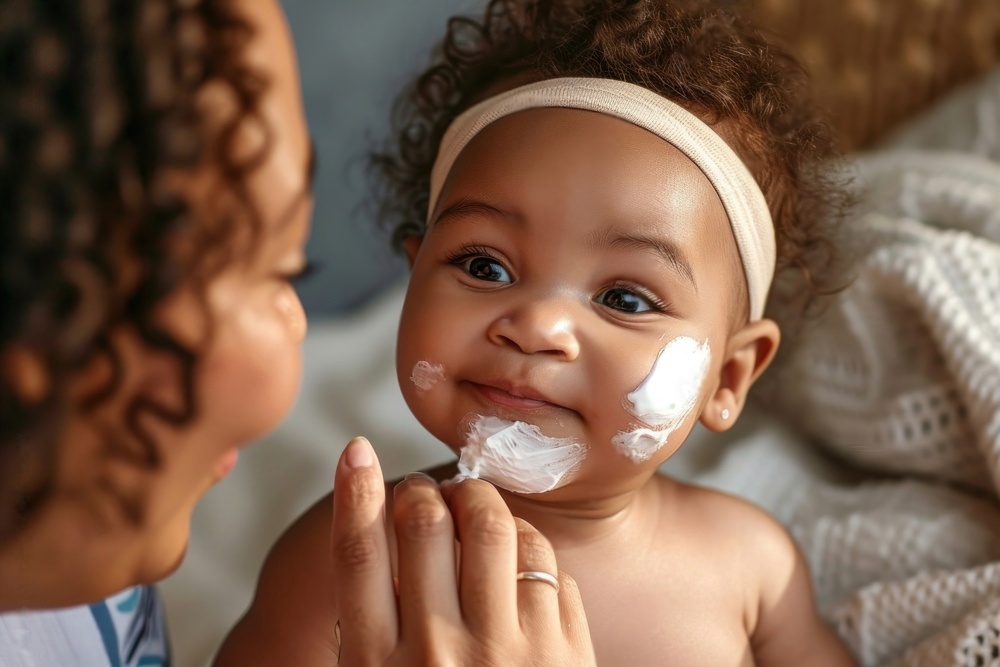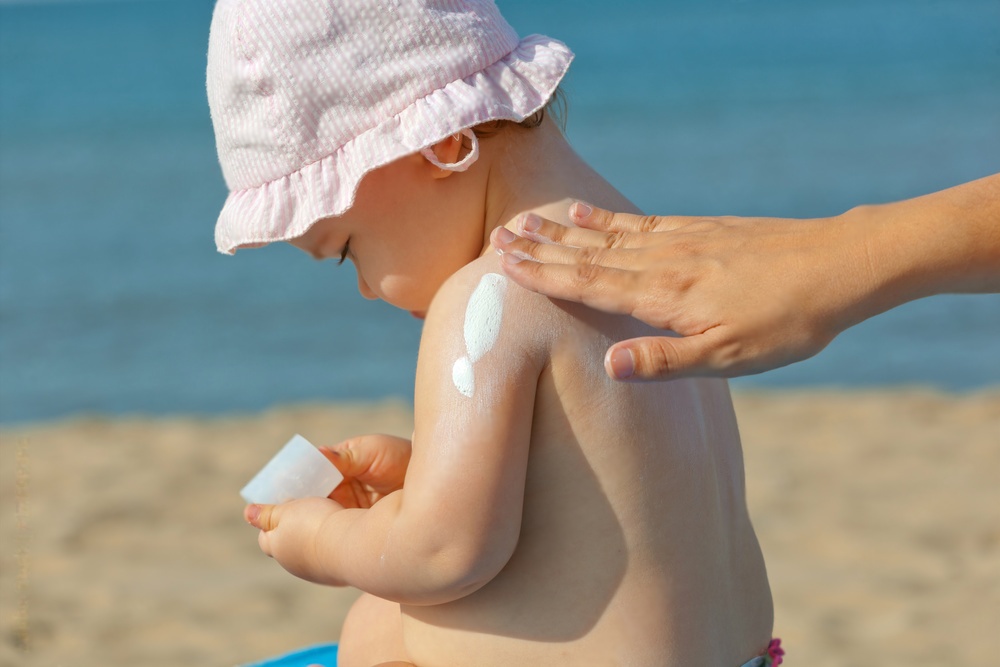As a devoted parent, safeguarding your baby’s skin’s health and suppleness is paramount. Given their delicate nature, a baby’s skin demands special attention and tender care. Mastering the art of nurturing your baby’s skin encompasses a range of factors, including bathing rituals, product selection, and effectively managing prevalent skin concerns. Explore these crucial tips designed to preserve your baby’s skin, ensuring it remains soft, smooth, and free from irritations.
Understanding Baby Skin
A baby’s skin is notably different from adult skin, being thinner, more sensitive, and prone to irritation. It is crucial to comprehend the distinct characteristics of infant skin to provide appropriate care. The epidermis, the outer layer of skin, is more permeable in babies, making it more susceptible to external irritants and moisture loss. Consequently, maintaining a proper skincare routine becomes pivotal.
Gentle Bathing Practices for Your Baby’s Skin
Begin by preparing a warm, soothing bath for your little one. It’s crucial to use lukewarm water to prevent any shocks to their delicate skin. Aim to keep the bath time short, just a few minutes, to prevent the skin from drying out.
When selecting the soap or cleanser, opt for products explicitly formulated for babies. These should be mild, gentle, and free from any strong fragrances that might irritate their sensitive skin. Gently lather and cleanse your baby’s skin, paying particular attention to creases and folds where dirt may accumulate.
Once the bath is complete, it’s time to dry your baby. Instead of rubbing their skin vigorously, use a soft towel to pat them gently. This helps in removing excess water while ensuring to leave some moisture on their skin. This retained moisture helps keep the skin hydrated and prevents it from becoming too dry or irritated.

Moisturizing Your Baby’s Skin
After your baby’s bath, it’s essential to apply a gentle, hypoallergenic moisturizer to their skin. This step helps in sealing in the moisture and maintaining the skin’s hydration levels.
Select a moisturizer specifically designed for babies that is both fragrance-free and hypoallergenic. Look for products containing natural ingredients such as shea butter or coconut oil. These ingredients are known for their ability to nourish and protect the skin, locking in moisture and creating a protective barrier against dryness.
Apply the moisturizer gently, using smooth and light strokes across your baby’s skin. Pay particular attention to areas that are prone to dryness, such as elbows, knees, and cheeks. Massaging the moisturizer in gently not only helps in better absorption but also provides a soothing experience for your little one.

Selecting Gentle Fabrics for Your Baby’s Clothing
When it comes to dressing your baby, the choice of fabric plays a crucial role in their comfort and skin health. Opt for soft, breathable fabrics such as cotton, as they are gentle on your baby’s delicate skin and allow proper ventilation.
Cotton, being a natural and lightweight material, minimizes the risk of irritation and provides a soft touch against your baby’s skin. It allows air to circulate, preventing overheating and maintaining a comfortable temperature for your little one.
Steer clear of rough or tight clothing that might rub against your baby’s skin, potentially causing chafing or discomfort. Instead, choose loose-fitting garments made from soft fabrics that won’t restrict their movement or cause any irritation.
Prioritizing soft and breathable fabrics like cotton in your baby’s wardrobe ensures they stay cozy, comfortable, and free from skin irritations, promoting overall skin health.

Caring for Your Baby’s Diaper Area
Regular diaper changes are essential to prevent diaper rash and maintain your baby’s skin health. Ensure you change your baby’s diaper frequently, as soon as it becomes wet or soiled, to keep their skin dry and free from irritation.
When it’s time for a diaper change, gently cleanse your baby’s diaper area using fragrance-free wipes or warm water and a soft cloth. Ensure you pat the area dry gently to remove any remaining moisture.
After thoroughly drying the skin, apply a diaper cream containing zinc oxide. This cream acts as a protective barrier, shielding your baby’s skin from moisture and irritants present in urine and stool. The zinc oxide helps soothe the skin and prevent diaper rash.

Protecting Your Baby from Sun Exposure
It’s crucial to shield your baby from direct sunlight to safeguard their sensitive skin from harmful UV rays. Limit their exposure to the sun, especially during peak hours when the sun’s rays are strongest, typically between 10 a.m. and 4 p.m.
When heading outdoors, take proactive measures to protect your baby’s delicate skin. Dress them in lightweight, long-sleeved clothing that covers their arms and legs. Opt for fabrics that provide adequate sun protection without causing overheating.
In addition to clothing, use a wide-brimmed hat to shield their face, ears, and neck from direct sunlight. Hats with a brim help create shade and offer extra protection to these sensitive areas.
Moreover, apply a gentle baby sunscreen with a minimum SPF of 30 to any exposed skin, such as the face and the back of their hands. Ensure the sunscreen is specifically formulated for babies, as their skin is more sensitive and prone to irritation. Apply the sunscreen generously and reapply as directed, especially after swimming or sweating.

Monitoring Your Baby’s Skin Health
Regularly inspecting your baby’s skin is essential to detect any signs of irritation, rashes, or potential allergies. Set aside time to observe their skin, particularly after baths or changes in products used.
Check for any redness, dry patches, or unusual bumps on their skin. Pay attention to areas prone to irritation, such as the diaper area, folds of skin, and the face. Any persistent discomfort or unusual changes should be closely monitored.
If you notice any concerning changes in your baby’s skin or if they appear uncomfortable, it’s crucial to seek guidance from a pediatrician. They can provide professional advice, diagnose any underlying issues, and recommend suitable treatments or skincare routines tailored to your baby’s needs.
Nourishing Your Baby Through a Balanced Diet
For breastfeeding mothers, maintaining a well-rounded and nutritious diet is crucial, as it can positively influence your baby’s skin health. The nutrients you consume are passed on to your baby through breast milk, impacting their overall well-being, including their skin.
Focus on incorporating a variety of nutrient-rich foods into your diet. Opt for foods high in vitamins, such as fruits, vegetables, and leafy greens, which provide essential antioxidants and promote healthy skin development for your baby.
Include sources of healthy fats, like avocados, nuts, and fatty fish, as they contribute to skin health and provide essential fatty acids that are beneficial for your baby’s skin development.
Ensure you stay adequately hydrated by drinking plenty of water throughout the day. Hydration is key to maintaining healthy skin for both you and your baby.

Protecting Your Baby from Harsh Substances
It’s vital to be mindful of the products you use in your baby’s environment to prevent potential skin reactions and discomfort. Avoid products containing harsh chemicals, strong detergents, or artificial fragrances as these can be harsh on your baby’s delicate skin.
When selecting household cleaning agents, opt for gentle, baby-safe alternatives that are free from harsh chemicals and fragrances. Consider using natural, non-toxic cleaning products to minimize any potential skin irritations.
Similarly, when laundering your baby’s clothes, choose mild, hypoallergenic detergents that are specifically formulated for sensitive skin. Avoid using fabric softeners or dryer sheets that may contain fragrances or chemicals that could cause skin reactions.
Furthermore, be cautious with personal care products such as lotions, shampoos, and baby wipes. Look for gentle, fragrance-free options that are specially designed for babies, minimizing the risk of skin sensitivity or irritation.
Final Thoughts
Caring for a baby’s skin demands attention to detail and the use of gentle, appropriate products. Prioritizing a skincare routine that incorporates mild cleansing, adequate hydration, and protection against irritants and the sun is essential. Remember, each baby is unique, so observe your baby’s skin reactions and adjust accordingly.



